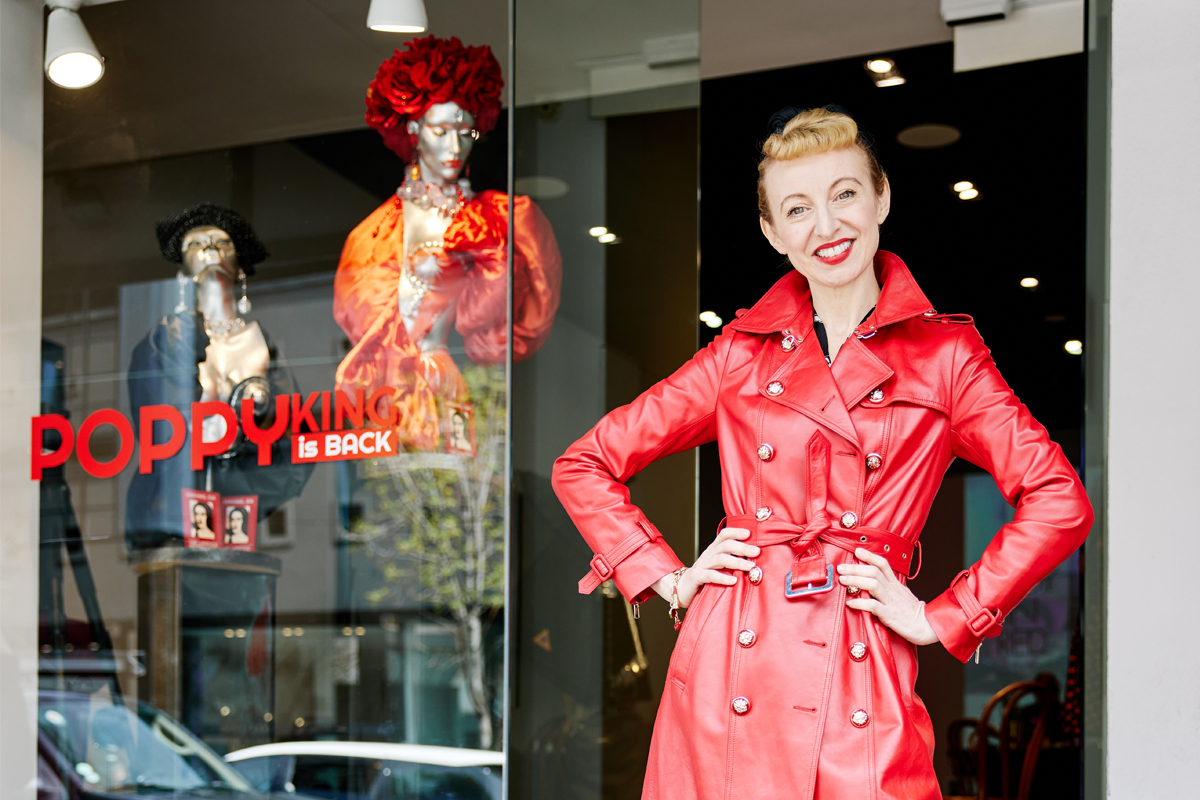Poppy King, renowned for her contributions to the lipstick industry, recently returned to the beauty scene with a fresh focus. Having started her own company, Poppy Industries, at 19 in 1991, she quickly earned acclaim with her range of matte lipsticks, leading to significant success.
Despite a challenging expansion into the US that resulted in receivership, King persisted, creating Lipstick Queen in 2006 and later selling it in 2011. Last year, she reintroduced the Seven Deadly Sins lipstick line, starting with Original Sin, embracing a direct-to-consumer model that prioritised intimate customer interactions.
Now, her planned return to Australia in July marks a new chapter in her storied career. Her focus will ultimately be redesigning how colour is applied to the lips so that packaging waste can be greatly reduced is set to inspire an industry-wide shift towards more ethical practices, positioning her once again as a trailblazer in the beauty landscape.
After such a successful career in the US, what brings you back to Australia?
It’s really about reconnecting with where it all started for me. Australia is not just where I’m from; it’s where I feel most inspired. I’ve built strong relationships with retailers worldwide, but there’s something special about coming back and motivating my original base here. Returning to Australia is not about closing a chapter; it’s about opening a new one where I first found my passion.
Can you share how your early experiences shaped your approach to business?
Absolutely. I started my first beauty venture when I was just 19, using faxes, before the internet became what it is today. That innovative mindset has never left me. Whether it was the 90s or the 2000s, I’ve always aimed to merge the rock and roll ethos with intelligent beauty solutions. These early experiences taught me the importance of resilience and innovation in an ever-evolving market.
What are the key lessons from your career that you plan to apply in your new venture?
One major lesson is humility. Entrepreneurship isn’t about ego; it’s about enduring the highs and lows with grace. Another lesson is the importance of timing and understanding market needs. Now, I’m focusing ultimately once I am off the ground here I will turn my attention to sustainability—creating COLOUR beauty solutions that are not only effective but also WASTE conscious. It’s about being proactive rather than reactive, anticipating changes and adapting swiftly.
Speaking of sustainability, how do you plan to incorporate this into your business model?
A new approach I am working on will be a system where products are pre-sold and produced to order, reducing excess and waste. This model not only addresses environmental concerns but also aligns with modern consumer expectations. It’s a method that respects the planet while delivering quality to our customers.
What challenges do you foresee in reintroducing your brand to both old and new audiences?
The challenge is twofold: ensuring that those who grew up with my brand feel it still resonates, and simultaneously appealing to a new generation. I’m planning to leverage my past successes to reintroduce my brand in a way that honours its heritage while embracing innovative practices. It’s about authenticity which is a long game because it can’t be faked and often can’t be understood in the beginning.
What is unique about your marketing strategy?
My marketing strategy relies solely on user-generated content. This approach means only featuring images and stories from customers who have actually purchased and used the products, rather than using professional models or crafted photoshoots. This showcases the brand’s authenticity and my commitment to celebrating a diverse customer base. By using real customer experiences and stories, it reflects the genuine satisfaction and enthusiasm of our customers. It’s great to see women – and men – of all ages and backgrounds embracing the lipsticks.
How do you view the current landscape of the beauty industry, especially with your focus on sustainability?
The industry is at a tipping point. There’s a growing demand for transparency and sustainability, and brands that fail to adapt will struggle. My aim is to lead by example, showing that you can deliver high-quality, desirable products without compromising ethical standards. This is an era of ‘smart beauty’ where consumers expect brands to be as environmentally conscious as they are innovative.
What’s your long-term vision for your brand in Australia?
Long-term, I see my brand not just as a leader in beauty but as a pioneer in sustainable business practices. I want to create a legacy that empowers consumers to make informed choices that benefit both themselves and the planet. We’re not just selling products; we’re fostering a community that values beauty and sustainability equally. The goal is to build a brand that inspires, nurtures, and leads the charge towards a more sustainable and ethical beauty industry.
This article was first published in the Winter issue of Retail Beauty:
- For more news and updates, subscribe to our weekly newsletter
- Follow us on Instagram
- Like us on Facebook
- Connect with us on LinkedIn

